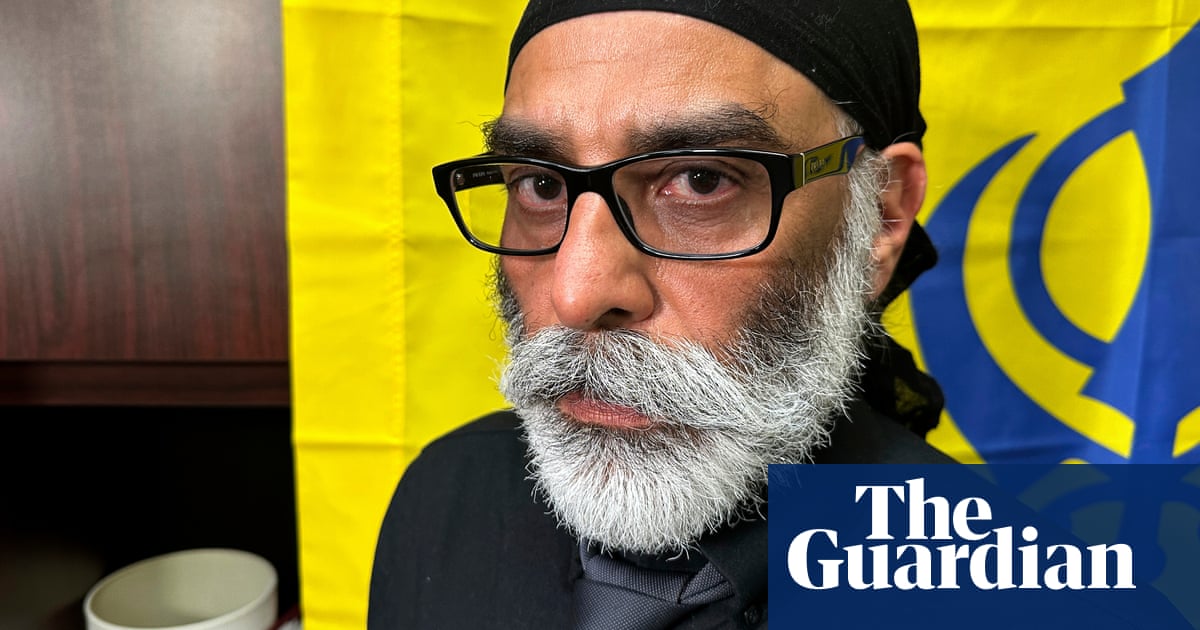
The Cuban president, Miguel Díaz-Canel, has attacked the “shameful delinquents” he claimed were trying to “fracture” his country’s communist revolution after the Caribbean island witnessed its largest anti-government protests in nearly three decades.
As Cuban officials blamed the US for Sunday’s demonstrations, Joe Biden called on the island’s leaders to hear its citizens’ “clarion call for freedom”.
“The Cuban people are bravely asserting fundamental and universal rights,” Biden said in a statement.
In a televised address on Monday morning Díaz-Canel, who recently succeeded Raúl Castro as the Communist party’s top figure, painted the protests as part of a United States-backed, social media-driven plot to stir up public discontent and overthrow the Cuban regime.
“The approach wasn’t peaceful yesterday,” the 61-year-old politician claimed, criticising the “completely vulgar” behaviour of some demonstrators who he accused of throwing rocks at police and destroying cars. Díaz-Canel conceded other protesters had legitimate concerns over food shortages and blackouts, although he blamed those problems on US sanctions. “It’s legitimate to feel dissatisfaction,” the party’s powerful first secretary said in the broadcast.
Rogelio Polanco Fuentes, a top party official who runs its ideology department, denounced the protests as part of a well-funded US-sponsored effort to create “instability and chaos” in Cuba, which is currently experiencing its worst economic slump in decades as well as a worsening Covid crisis.
Polanco Fuentes compared Sunday’s protests to the failed US-backed uprising against Venezuela’s authoritarian leader, Nicolás Maduro, in 2019. “We are living through new chapters of the non-conventional war … in other places they have called these Colour Revolutions … or soft coups,” Polanco said.
Cuban dissidents rejected those claims about the protests which rippled across Cuba on Sunday, with thousands taking to the streets to denounce the lack of medicine and food and the lack of political freedoms.
By Sunday afternoon the demonstrations had reached one of Cuba’s most iconic locations: the seafront Malecón in the capital Havana where thousands of protesters were seen chanting “homeland and life” and “freedom”. The Malecón promenade was the setting of Cuba’s last significant street demonstrations, a sudden and short-lived explosion of dissent in 1994 known as the “Maleconazo Uprising”.
“What is happening is absolutely historical for us … I think this is a point of no return. Things will never be there same after this,” said Carolina Barrero, a 34-year-old Havana-based activist. “We are talking about thousands and thousands and thousands of people, all across the island. In every little town there was protest, [it was] completely spontaneous.
“They were shouting: ‘We don’t have fear any more!’ ‘We want freedom!’ and ‘Abajo la dictadura!’ (Down with the dictatorship!)’” added Barrero, an art historian who said she had recently been placed under house arrest after being detained reading a poem outside Cuba’s culture ministry.
Paul Hare, the former British ambassador in Havana, said Cuba’s leaders would be concerned by the highly unusual eruption of dissent, and particularly how it had been organized with the help of social media. Word of the protests spread rapidly on Sunday, as celebrities and influencers shared news of the marches using the hashtag #SOSCuba.
“What Cuba’s government has always dreaded is a coordinated movement, as opposed to sporadic protests … They see it as the possible genesis of an organized rival political movement,” Hare said.
“The hardliners will be saying: ‘Be careful – this could get out of hand’ … They will be worried [about the protests]. It is a sign that the Communist party is no longer able to vertically dictate what policy should be,” Hare added.
Cuban activists said they were unimpressed with Díaz-Canel’s initial response to their demands, and particularly his call on Sunday for “revolutionaries” to hit the streets to confront protesters’ provocations “with firmness and bravery”.
“What worries me the most is how they are trying to lay the ground for a wave of repression,” said Claudia Genlui Hidalgo, a 30-year-old dissident who saw several friends arrested on Sunday. “When he says ‘revolutionaries to the street’, he’s inciting violence.”
Barrero said she hoped the protests would lead to a peaceful transition away from one-party rule but was also troubled by the possibility of conflict and by Díaz-Canel’s description of the protests as “counter-revolutionary mercenaries”.
Hare predicted there would now be a political crackdown on those identified as protest ringleaders as Communist party security chiefs fought to prevent a repeat.
World leaders reacted to Cuba’s unexpected convulsion on Monday with Mexico’s president, Andrés Manuel López Obrador, saying he hoped a peaceful resolution could be reached “without the use of force, without confrontation and without violence”. “The Cubans must decide [the solution] because Cuba is a free, independent and sovereign nation – there must be no interventionism,” López Obrador added.
A spokesperson for Russia’s foreign ministry also cautioned against “outside interference” that sought to “encourage the destabilization” of the communist-run island.









